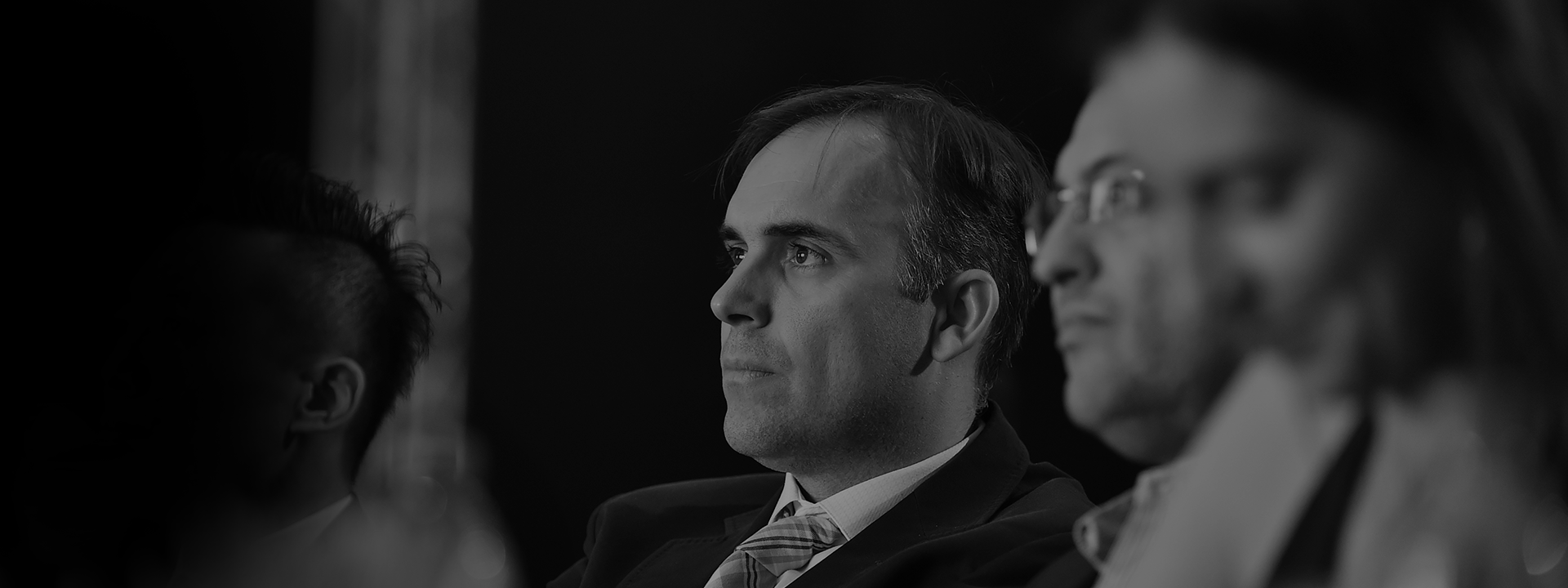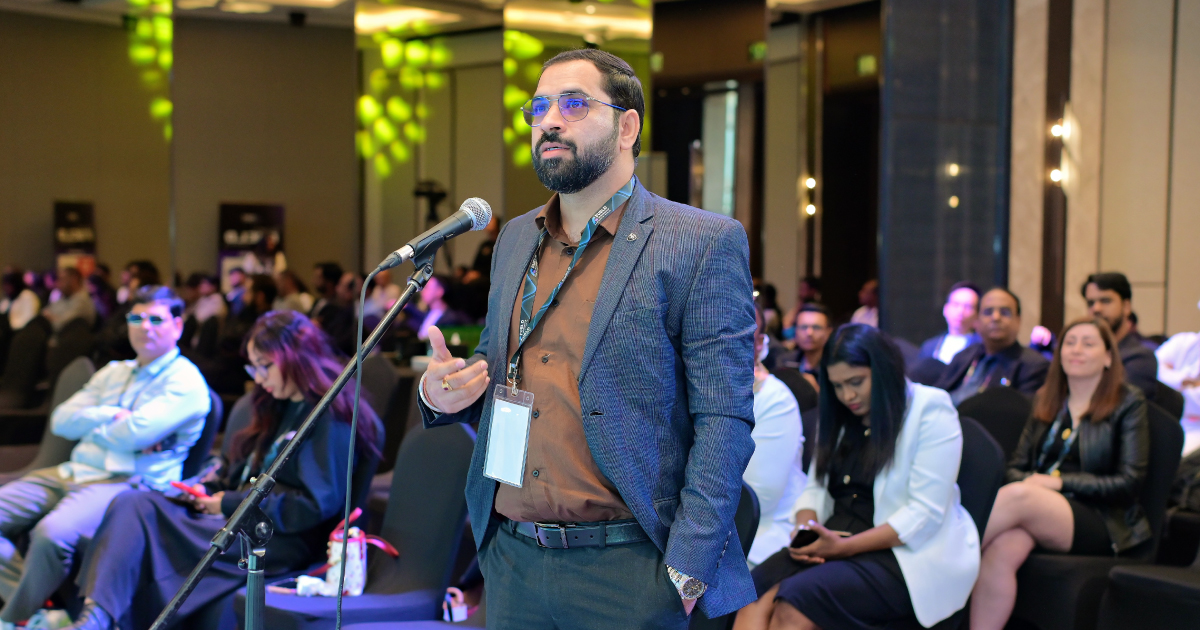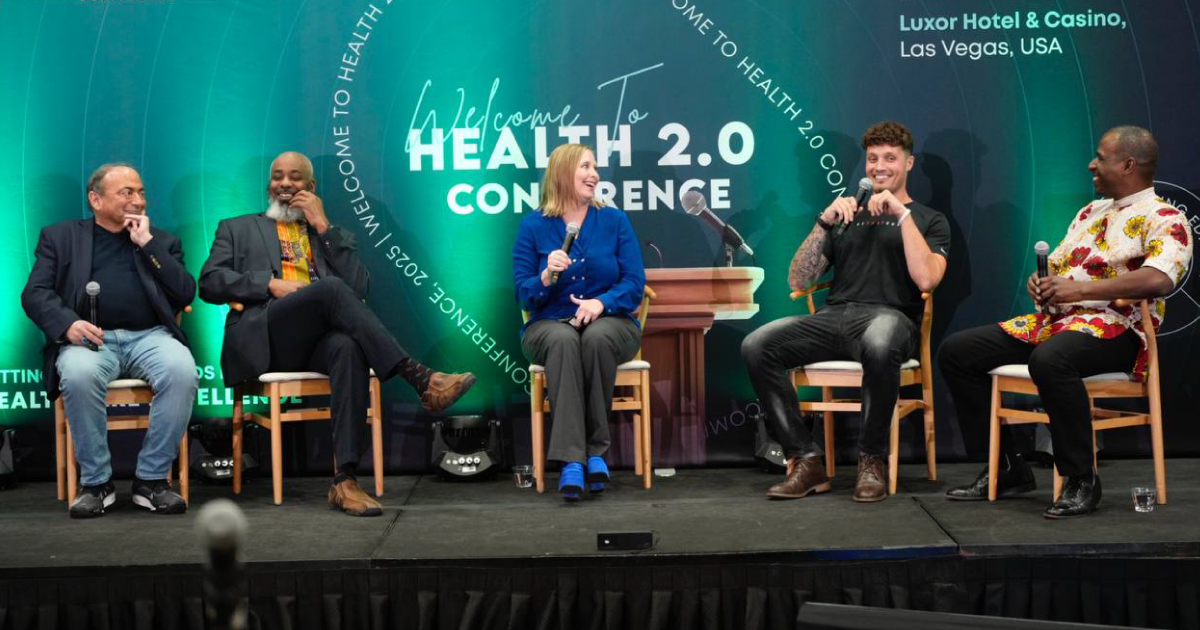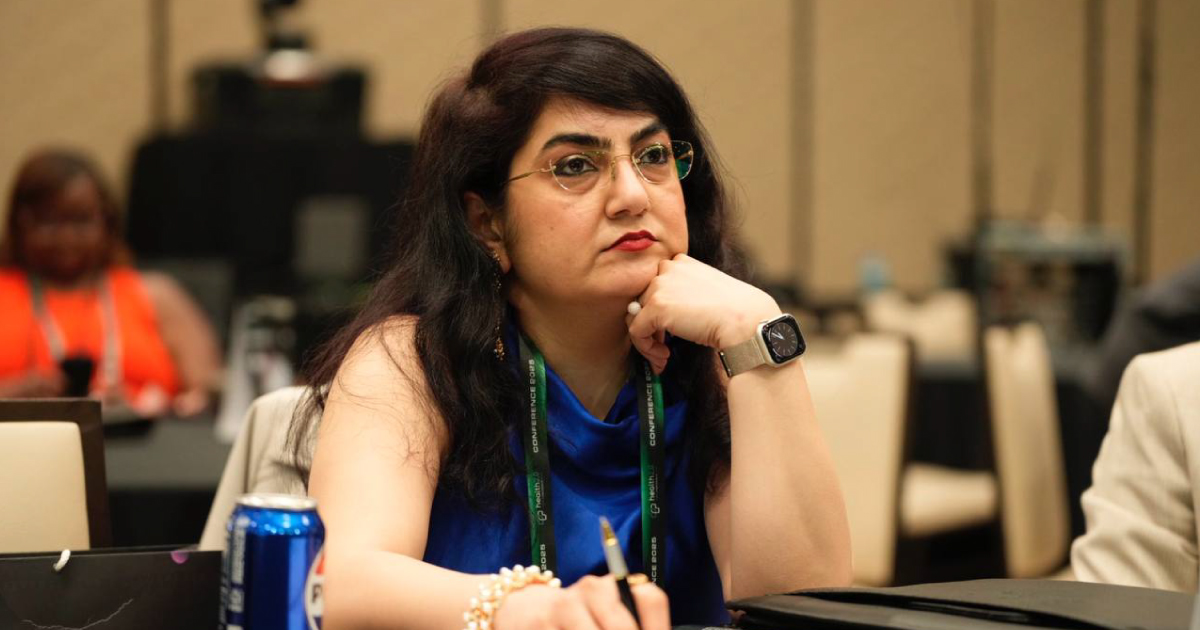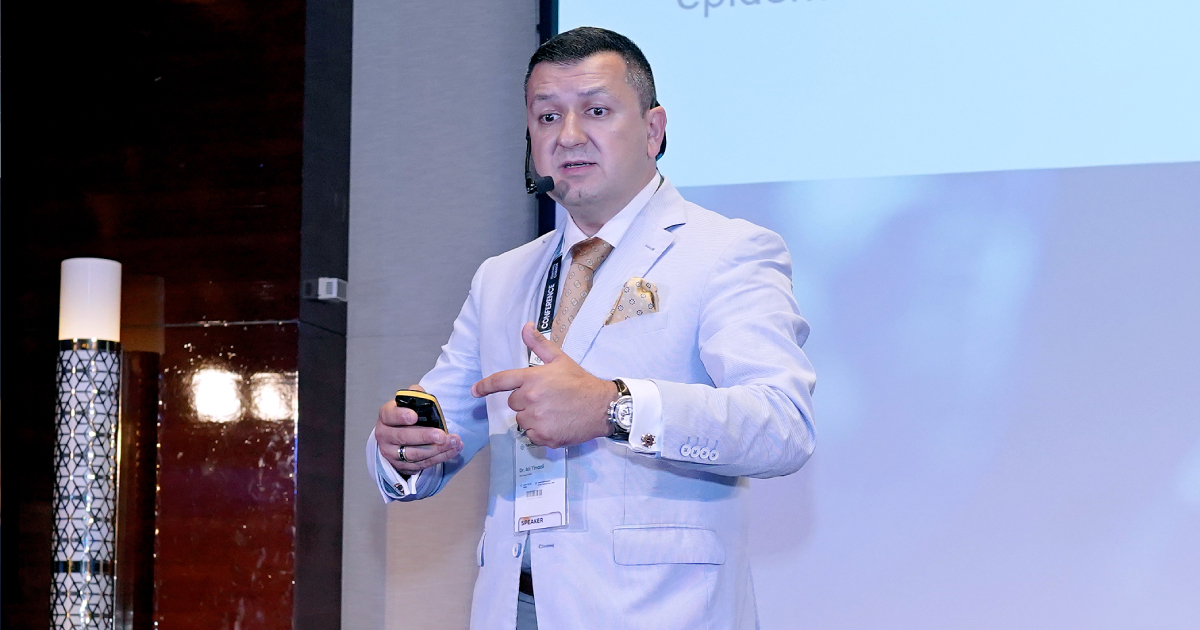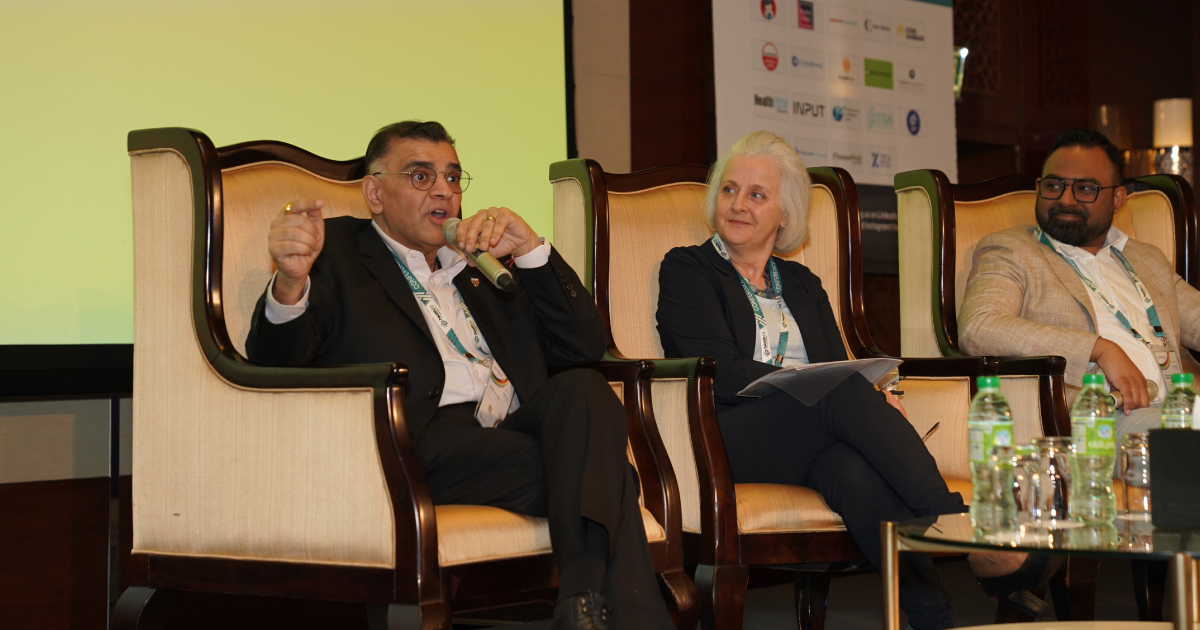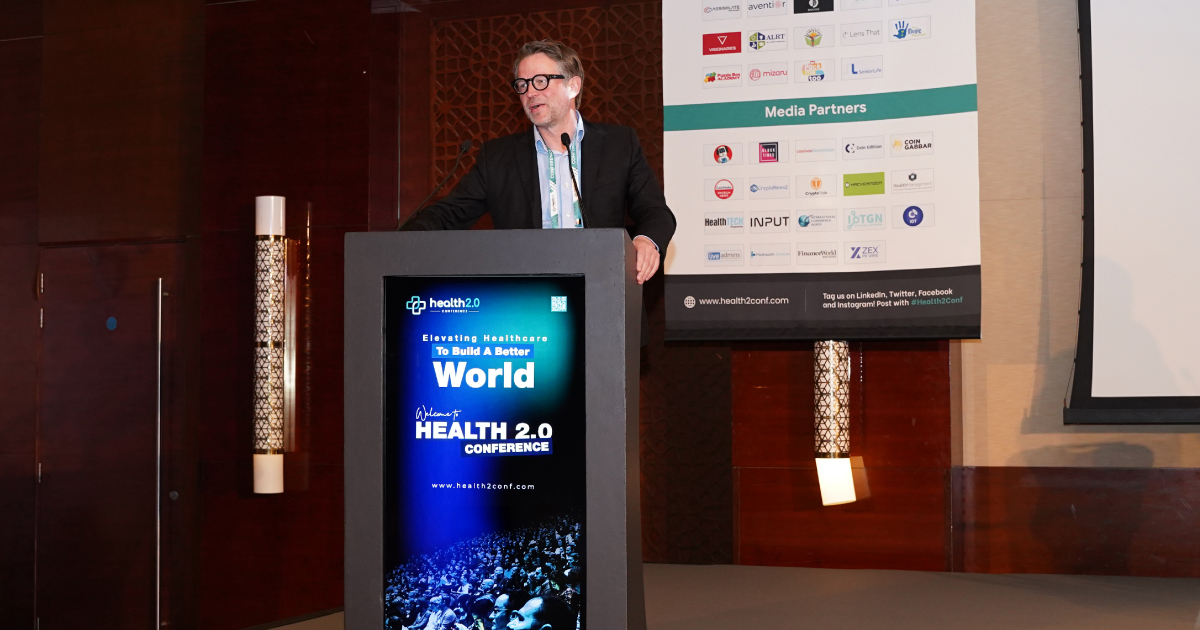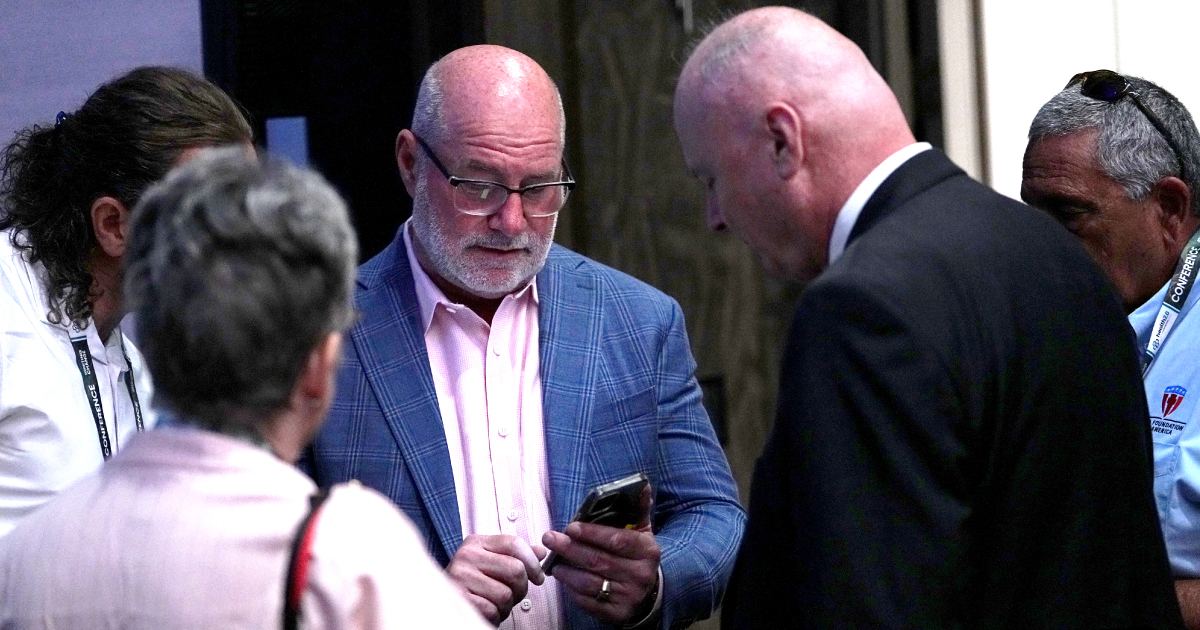Posted on : July 21, 2025
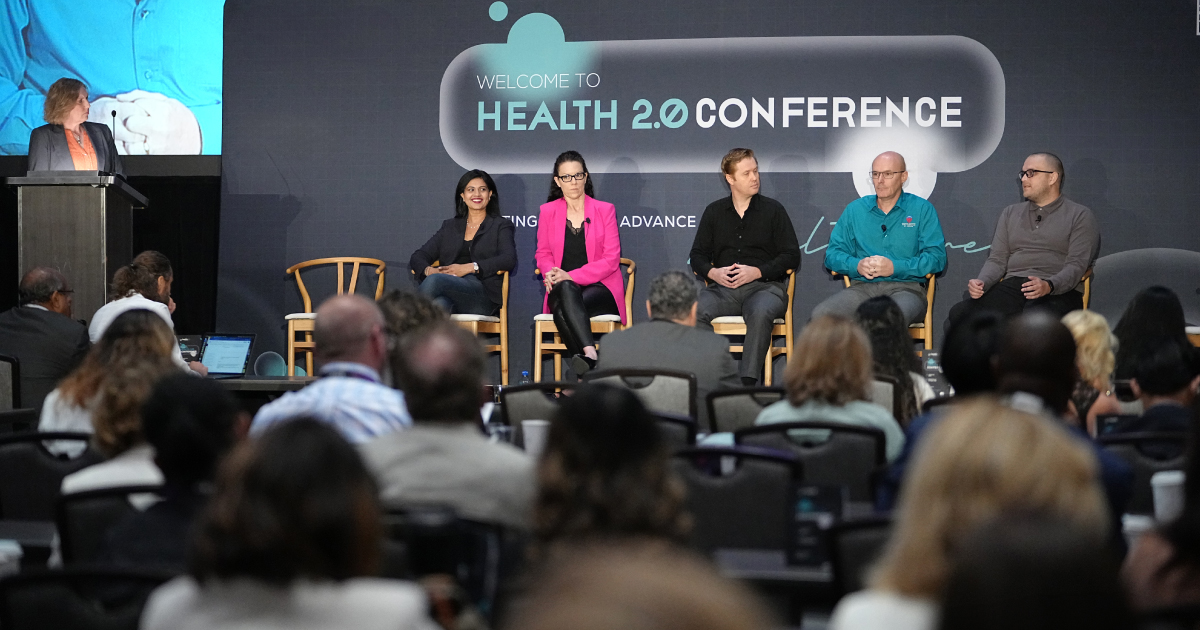
You wake up, reach for your phone, and start scrolling. Before you even step out of bed, your mind is flooded with notifications, emails, and updates. This routine feels normal, but is it harming your well-being?
Digital overload is linked to stress, anxiety, and reduced focus. More people are turning to digital detoxing to regain control, improve mental clarity, and reconnect with the real world. Experts at the Health 2.0 Conference, our leading healthcare event in Dubai, have highlighted how excessive screen time impacts mental and physical health. But is digital detoxing just another wellness trend, or is it a lasting technological shift?
Let's discuss the rise of digital detoxing, its benefits, challenges, and the science behind screen addiction. Let’s get started.
What Exactly Is Digital Detoxing?
A digital detox involves stepping away from screens like smartphones and laptops to lower stress and enhance focus. Unlike simply limiting screen time, a detox is about completely unplugging for a set period. Many workplaces, schools, and wellness retreats now promote digital detox programs to encourage a healthier relationship with technology.
Why Is Digital Detoxing Trending?
Digital detoxing is gaining popularity because people are becoming more aware of how excessive screen time affects their mental and physical health. Several factors are driving this trend:
- Rising Mental Health Concerns: Too much time spent on screens has been linked to higher levels of anxiety, depression, and emotional distress. More people recognize the need to disconnect and focus on their mental well-being.
- Sleep Disruptions From Screens: Digital screens emit blue light that suppresses melatonin, delaying sleep onset. A digital detox can help restore a natural sleep cycle.
- Desire For Real-World Connections: Many people feel disconnected from family and friends despite being digitally connected. Taking a break from screens encourages meaningful face-to-face interactions.
- Influencer & Celebrity Influence: Public figures openly discuss the benefits of digital detoxing, making it a trend that more people are willing to try.
How Digital Overload Affects Your Brain?
The brain responds to constant notifications and digital interactions by releasing dopamine, the chemical associated with pleasure and reward. This can lead to screen addiction, where people crave more online engagement even if it causes stress. Here is how excessive screen use affects the body and mind:
- Shortened Attention Span: Constant multitasking between emails, apps, and notifications makes it harder to focus on one task for an extended period.
- Increased Stress & Anxiety: Endless scrolling, news updates, and digital comparisons can make people feel overwhelmed and anxious.
- Poor Productivity: Digital distractions reduce efficiency and make simple tasks take longer.
- Eye Strain & Headaches: Staring at screens for hours can cause headaches, dry eyes, and even long-term vision issues.
How Digital Detoxing Improves Your Well-Being?
Unplugging from digital devices, even for a short time, can help improve long-term well-being. Some of the most notable benefits include:
- Sharper Focus And Mental Clarity: Without constant notifications, the brain can concentrate better, leading to increased productivity and deeper thinking.
- Better Sleep Quality: Reducing screen time before bed supports a healthy sleep cycle and improves sleep quality.
- Stronger Personal Connections: Putting phones away during conversations improves relationships and encourages more meaningful interactions.
- Reduced Anxiety And Stress: A break from social media and news cycles allows people to focus on their own well-being rather than external pressures.
Source - Truworth Wellness
Challenges You May Face During A Digital Detox
While the benefits are clear, disconnecting from digital devices is not always easy. Some common challenges include:
- Fear Of Missing Out (FOMO): Many people worry they will miss important news, work updates, or social interactions if they unplug.
- Work And Career Demands: Professionals often struggle to take a break from emails and work-related digital tools, making detoxing difficult.
- Social Expectations And Peer Pressure: In a world where instant messaging and social media updates are the norm, staying offline can feel isolating.
- Lack Of Alternative Activities: Some people find it hard to fill their time without screens, making the detox feel boring or frustrating.
Balancing work, social life, and digital well-being is not easy. Unplugging requires the right strategies and mindset. To gain expert insights, attend the Health 2.0 Conference, our healthcare conference where industry leaders share solutions for a healthier digital future.
How Are Tech Companies Addressing Digital Overload?
Interestingly, some of the biggest tech companies are now introducing features to help users manage screen time. But are these efforts genuine, or just a way to keep people using their platforms?
- Instagram’s ‘Take A Break’ Feature: Encourages users to pause scrolling after extended periods, but it is optional and easy to ignore.
- YouTube & TikTok’s Time Limits: Provide reminders when users exceed a set watch time, but users can choose to dismiss the alerts.
- Social Media’s Role In Digital Addiction: While these platforms offer screen time management tools, their business models still depend on keeping users engaged for longer.
Tech companies are responding to the digital detox movement, but individuals must take control of their screen habits. Our healthcare conference now highlights the impact of excessive screen time on mental fatigue and well-being.
Tips For A Successful Digital Detox
Thinking about trying a digital detox? Here are some practical steps to make the process easier:
- Start With Short Breaks: Begin by taking small digital-free periods, such as an hour before bedtime, and gradually increase the duration.
- Create No-Device Zones: Keep screens out of bedrooms, dining tables, and workspaces to promote a healthier balance.
- Use ‘Do Not Disturb’ Mode: Turn off non-essential notifications to minimize distractions and interruptions.
- Find Engaging Offline Activities: Replace screen time with hobbies like reading, painting, yoga, or outdoor walks.
Sticking with these habits can help reduce screen fatigue and improve mental clarity. A little consistency goes a long way in reclaiming your focus and well-being.
Is Digital Detoxing More Than Just A Trend?
Some experts believe digital detoxing is a temporary wellness trend, while others see it as a necessary shift in how we interact with technology. Companies are introducing workplace wellness programs that encourage employees to unplug, and digital detox retreats are growing in popularity.
As people become more aware of how screen time affects their health, the demand for digital detoxing will likely continue to rise. However, the real challenge lies in finding a sustainable balance rather than just taking temporary breaks. Our Healthcare conference is now highlighting the impact of digital overload on mental well-being, emphasizing the need for long-term solutions rather than quick fixes.
Final Thoughts
Digital detoxing isn’t just about stepping away from screens—it’s about taking control of our time and well-being. At the Health 2.0 Conference, our anticipated healthcare event, we’ll explore why mindful tech use is more important than ever as digital overload impacts mental health.
While tech companies offer screen-time tools, real change starts with the choices we make. Whether it’s setting screen-free zones or cutting down notifications, small steps can bring lasting benefits. The digital world isn’t going anywhere, but how we engage with it is up to us. Are you ready to unplug and take back control?
FAQs
Q. What are the dates and locations for the upcoming Health 2.0 Conference editions?
A. The Health 2.0 Conference will take place in two locations: December 8–10, 2025, at the InterContinental DFC in Dubai, UAE, and April 7–9, 2026, at the Bellagio Hotel & Casino in Las Vegas, USA.
Q. Who attends the Health 2.0 Conference?
A. The event attracts a diverse group of professionals, such as startups, policymakers, healthcare providers, vendors, investors, and researchers. It's a platform for networking and collaboration among key players in the healthcare sector.
Q. What are the biggest myths about digital detoxing?
A. One of the biggest myths about digital detoxing is that it requires completely giving up technology when, in reality, it is about setting boundaries and using tech more mindfully. Another misconception is that a short detox will permanently fix screen addiction, but sustainable change comes from long-term digital well-being habits rather than a temporary break.
Q. How can organizations encourage digital well-being?
A. Organizations can encourage digital well-being by implementing screen-free breaks, mindful tech policies, and wellness programs that promote a healthier balance between work and digital engagement. Encouraging employees to set boundaries on after-hours communication and use productivity tools mindfully can help reduce stress and burnout.

